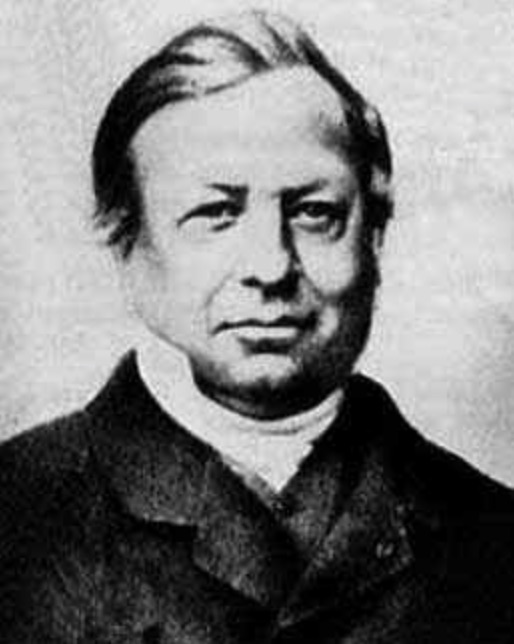
Joseph Liouville was born on March 24, 1809 in Saint-Omer, France. Liouville’s mathematical work ranged from the highly theoretical investigation of transcendental numbers to practical applications in electromagnetism. His investigation of boundary value problems in differential equations in the early 1830’s led to what is now known as the Sturm-Liouville theory that has been applied extensively in mathematical physics.
Liouville tried to prove that the number e = 2.71828… is transcendental, but although unsuccessful in this quest, he was able in 1844 to construct a transcendental number. Known today as the Liouvillian number, it is 0.1100010000000000000000010000… where there is a 1 in the n! decimal place and 0 elsewhere.
One of Liouville’s significant contributions to mathematics was his investigation of Évariste Galois’ unpublished papers. Galois, who died at age 20 in a duel, had submitted his ground-breaking papers to several famous French mathematicians, but those submissions went unexplored until Liouville, recognizing their vital importance, supplied some missing proofs and brought Galois’s discoveries to the attention of the mathematics community. In a paper presenting Galois’ work, he stated, “I engaged myself, to the attentive study of all the publications and manuscripts he [Galois] left. …My zeal was soon rewarded. I experienced great pleasure the moment when, after having filled in the minor gaps, I recognized both the scope and precision of the method that Galois proved. In particular, this is his beautiful theorem: In order for an irreducible equation of a primary degree to be solvable by radicals, it is necessary and sufficient that all the roots are rational functions of any two among them. This method, truly worthy of the attention of the geometricians, would be enough by itself to ensure our compatriot being ranked with the small number of the scientists who have deserved the title of ‘Inventor’.
